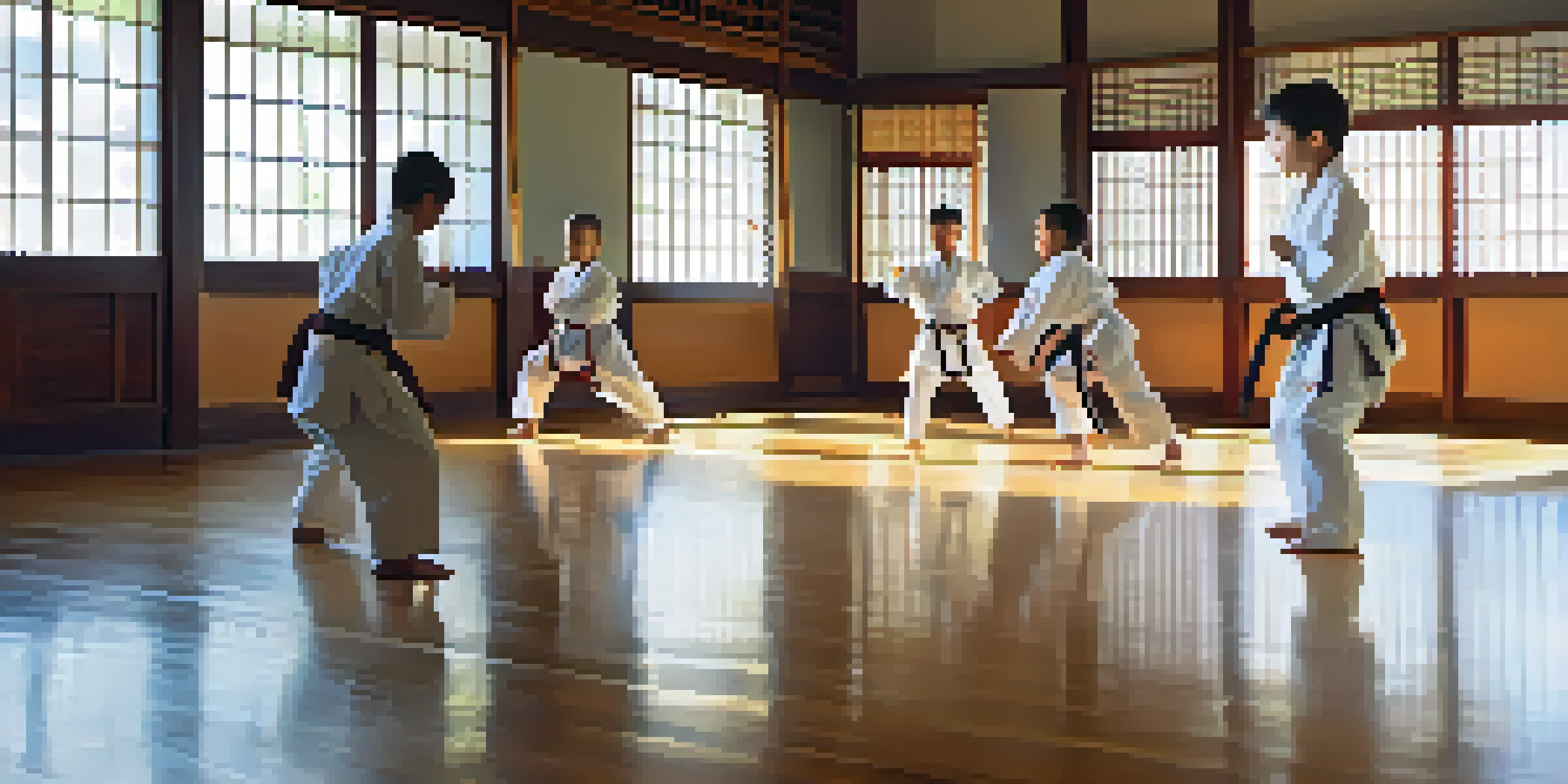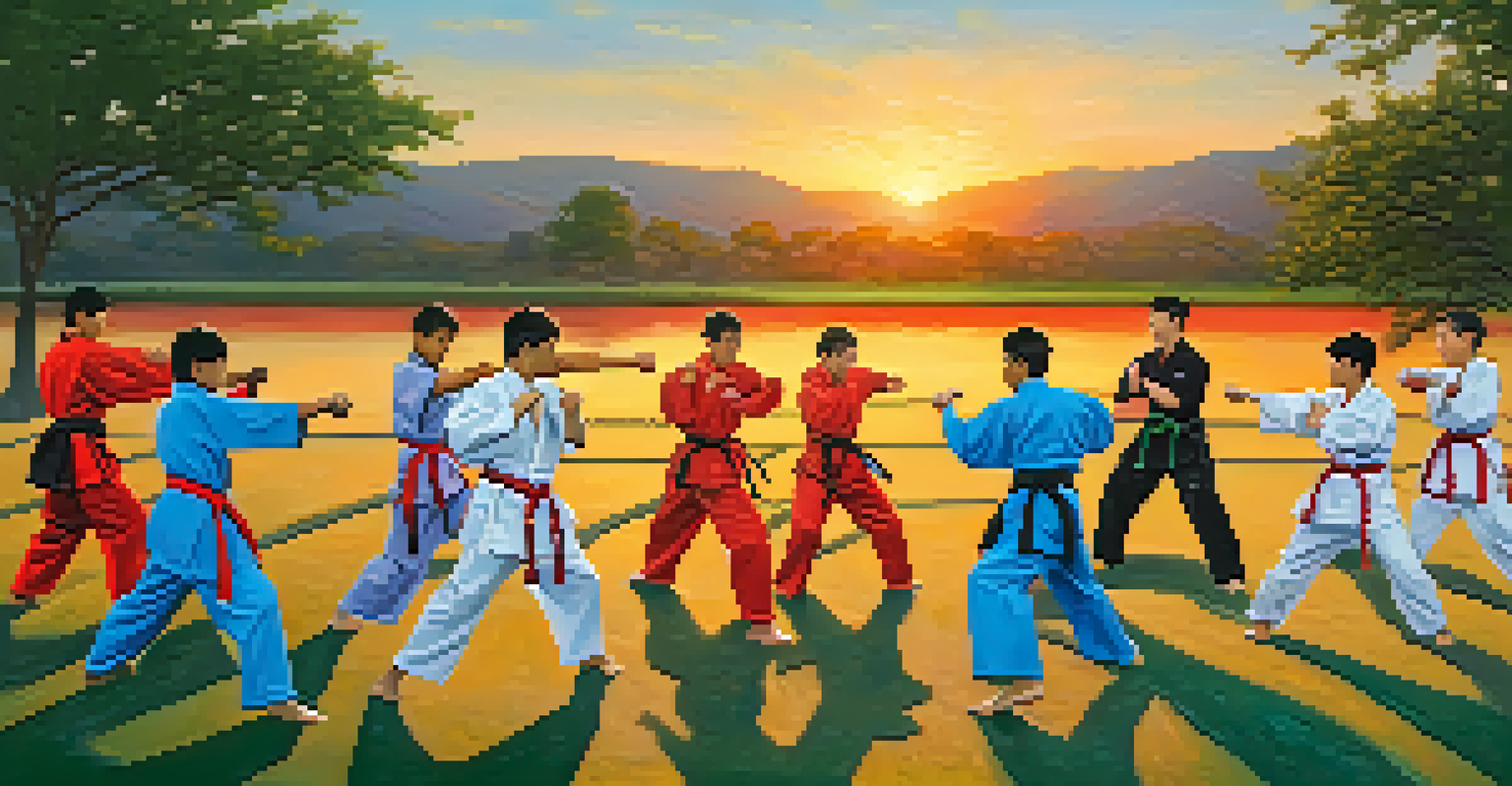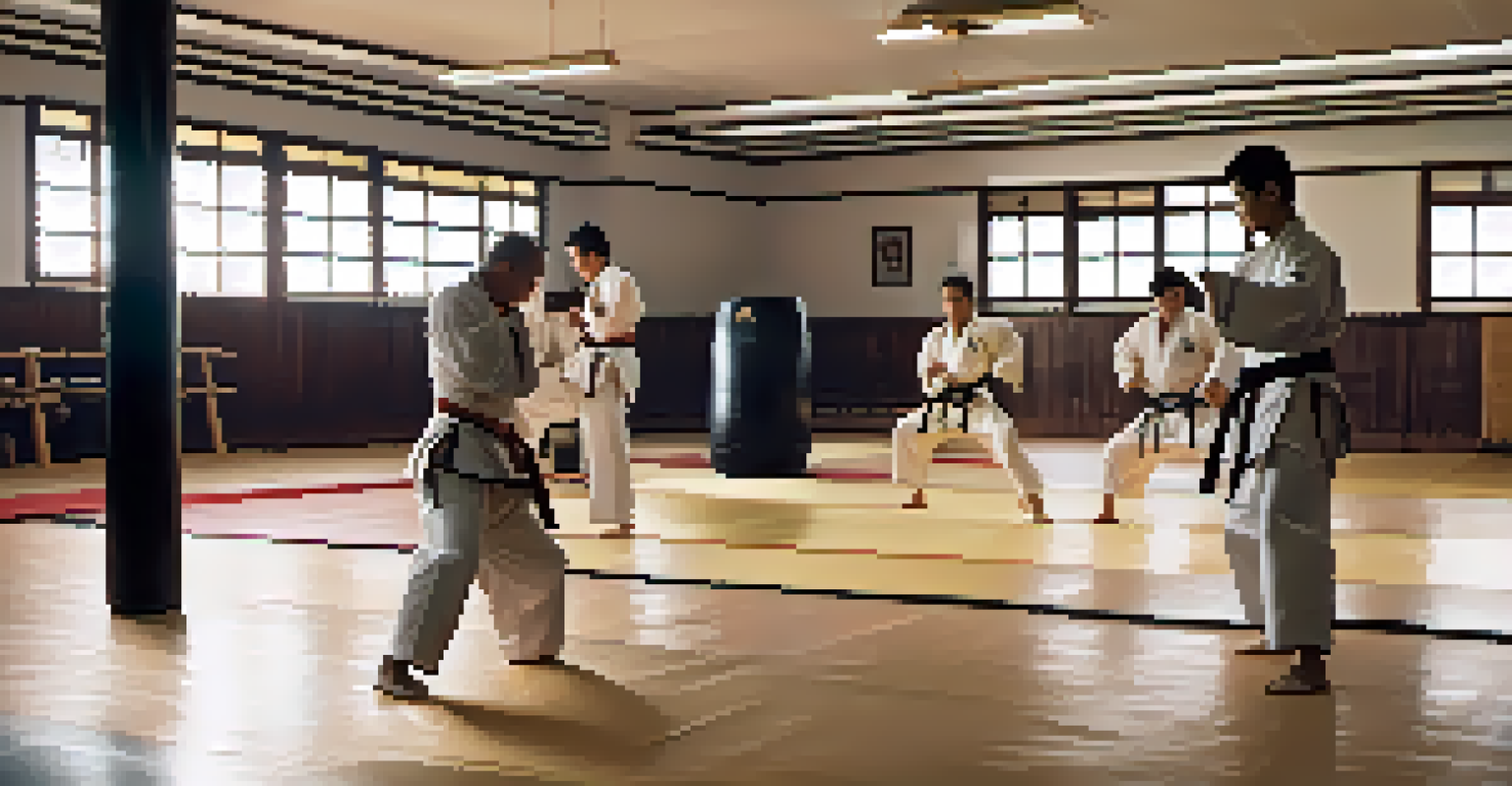Leadership Styles Cultivated in Martial Arts for Young People

Understanding Martial Arts as a Leadership Training Ground
Martial arts is often seen as a physical discipline, but it's much more than that. It's a rich environment for cultivating leadership qualities in young people. Through structured training, students learn to navigate challenges, which directly translates to leadership skills.
The ultimate aim of martial arts is not having to use them.
In the dojo, students are not just taught techniques; they are also encouraged to take responsibility for their learning. This fosters a sense of ownership and accountability, essential traits for any leader. The lessons learned extend beyond the mat, impacting personal and academic life.
Moreover, martial arts emphasizes respect, discipline, and perseverance. These values create a solid foundation for young individuals as they grow into leaders who understand the importance of integrity and hard work.
The Role of Discipline in Leadership Development
Discipline is a cornerstone of martial arts training. Students must adhere to a rigorous schedule and push through physical and mental barriers. This practice instills a strong work ethic, which is crucial for effective leadership.

As young martial artists learn to set short- and long-term goals, they also develop strategic thinking. Whether it’s mastering a new technique or preparing for a competition, they learn to plan, execute, and adjust their approach as needed.
Martial Arts Cultivates Leadership
Martial arts training fosters essential leadership qualities like discipline, confidence, and accountability in young people.
This disciplined mindset not only enhances their martial arts skills but also prepares them for future challenges in school and life. Leaders who embody discipline inspire those around them, creating a positive ripple effect.
Building Confidence Through Martial Arts Training
Confidence is a vital quality in any leader, and martial arts training is designed to build it. As students progress through different belt levels, they experience a tangible sense of achievement. This boosts their self-esteem and encourages them to take on new challenges.
Leadership is not about being in charge. It is about taking care of those in your charge.
In martial arts, students often face opponents who may be stronger or more skilled. Learning how to maintain composure and adapt during these encounters is key to developing resilience. This ability to face adversity head-on is what truly sets effective leaders apart.
Furthermore, as students teach and mentor others, they reinforce their own skills and knowledge. This not only solidifies their confidence but also cultivates a sense of responsibility and leadership within the community.
Conflict Resolution: A Core Leadership Skill
Martial arts often involves sparring and competition, which naturally leads to conflicts. However, these situations provide valuable lessons in conflict resolution. Young martial artists learn how to manage disagreements and find solutions that are fair and respectful.
By engaging in controlled sparring, students practice negotiating and reading their opponents. This not only sharpens their physical skills but also enhances their ability to assess situations and respond appropriately—a key trait for any leader.
Discipline Enhances Leadership Skills
The rigorous practice of martial arts instills a strong work ethic and strategic thinking, vital for effective leadership.
In real-world scenarios, the ability to resolve conflicts amicably can make a significant difference. Young leaders trained in martial arts are often better equipped to handle disputes, whether in school projects or future workplaces.
Fostering Teamwork and Community Spirit
While martial arts emphasizes individual achievement, it also fosters a sense of community and teamwork. Group classes and team events encourage students to support one another, creating a collaborative environment. This teamwork is essential for developing leadership skills.
As students train together, they learn the importance of communication and trust. They celebrate each other's successes and help one another improve, cultivating a culture of mutual respect. These experiences prepare them to lead diverse teams in the future.
In addition, martial arts schools often engage in community service and outreach programs. This involvement teaches young leaders the significance of giving back and being active participants in their communities.
Emotional Intelligence: Understanding Self and Others
Emotional intelligence (EI) is crucial for effective leadership, and martial arts training can enhance this skill. Students learn to control their emotions, especially in high-pressure situations like sparring or competitions. This self-regulation is key to leading others effectively.
Moreover, as they interact with peers and instructors, they develop empathy and understanding. Recognizing and respecting the emotions of others is part of the training, which helps aspiring leaders connect with their teams on a deeper level.
Emotional Intelligence in Leadership
Martial arts training enhances emotional intelligence, helping young leaders manage their own emotions and understand others better.
An emotionally intelligent leader can navigate complex social dynamics, making them more approachable and effective. The skills gained from martial arts help young people become leaders who inspire and motivate others.
Setting an Example: Leading by Action
In martial arts, instructors often emphasize the importance of leading by example. Students learn that actions speak louder than words, and they are encouraged to embody the values they wish to see in others. This principle is fundamental to effective leadership.
As young martial artists progress, they often take on leadership roles within their classes, whether through mentoring newer students or leading warm-ups. This hands-on experience reinforces the idea that true leaders inspire through their behavior and dedication.

By modeling positive behavior, young leaders can create an environment where everyone strives for excellence. This not only uplifts their peers but also strengthens the overall team dynamic—an essential component of success.